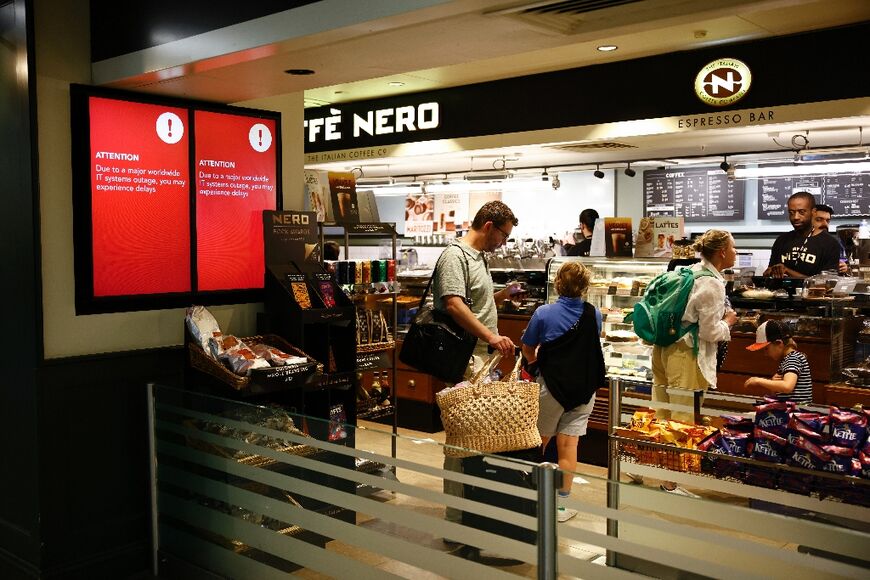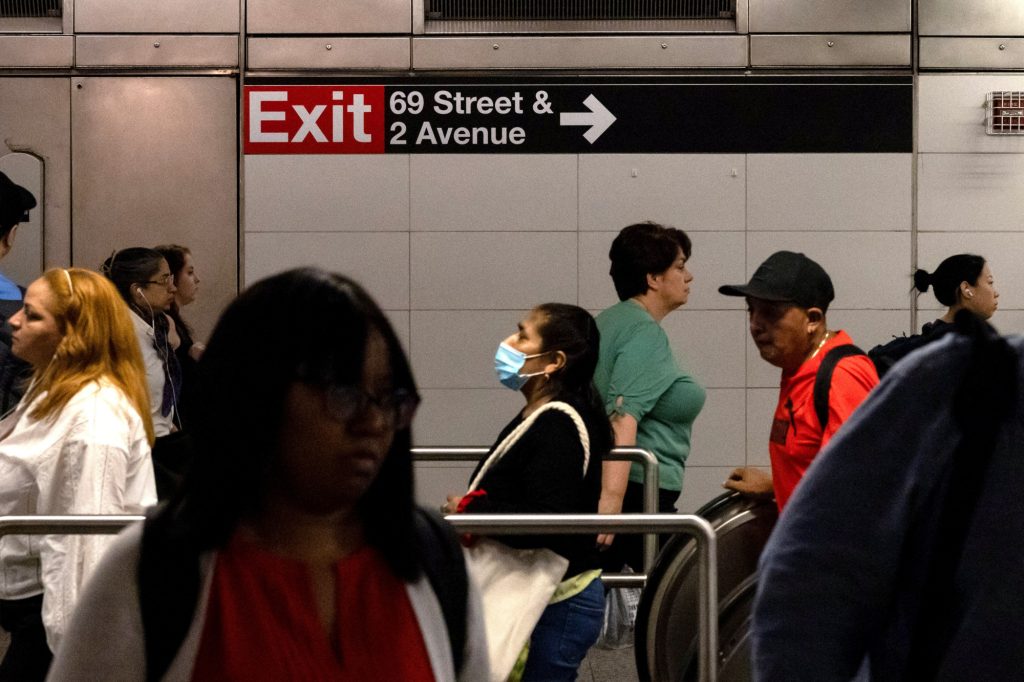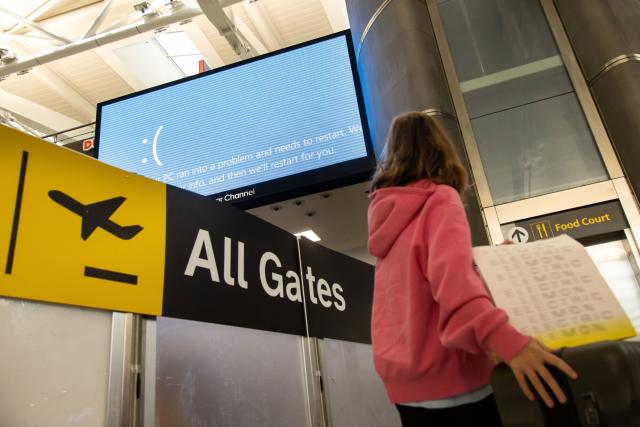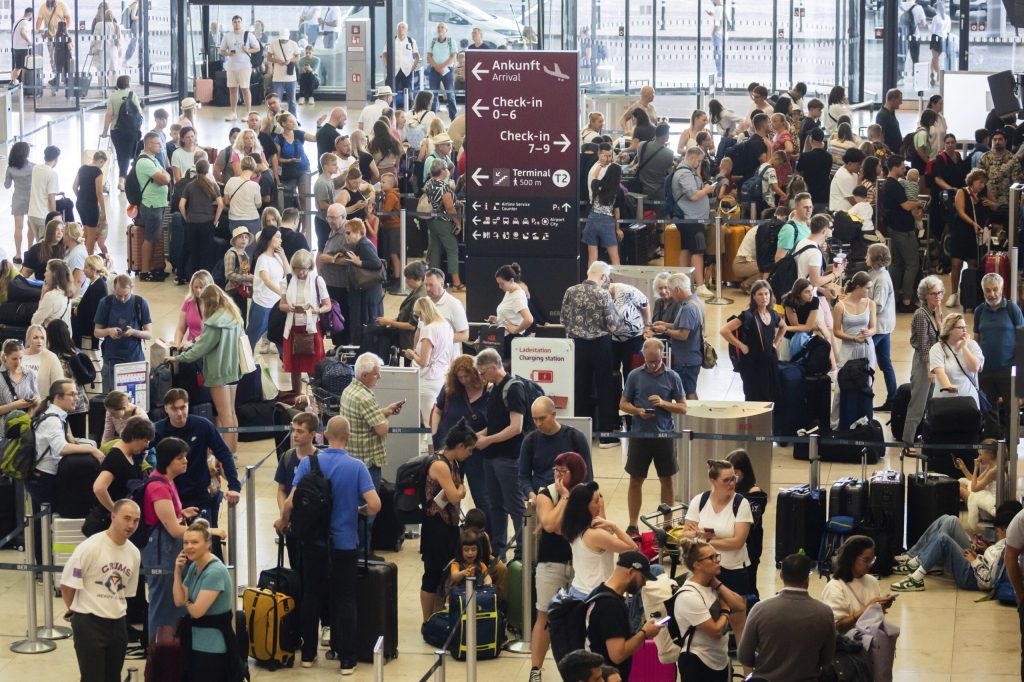On Friday, one of the most significant IT crashes in recent memory disrupted airlines, banks, TV channels, and financial institutions worldwide. The disruption was traced back to an update to an antivirus program.

Airports were crowded with passengers waiting for updates as numerous flights were canceled, and operators struggled to maintain services after an update to a program running on Microsoft Windows caused systems to crash globally. Microsoft reported that the issue began at 1900 GMT on Thursday and affected Windows users running the cybersecurity software CrowdStrike Falcon.
CrowdStrike announced that it had deployed a fix for the problem. The company’s CEO, George Kurtz, expressed his regret on US news channel CNBC, saying, “I want to personally apologize to every organization, every group, and every person who has been impacted.”

Despite the fix, CrowdStrike warned that it could take several days for operations to return to normal. The White House issued a statement saying that President Joe Biden’s team was in communication with CrowdStrike and those affected, offering assistance as needed. A senior US administration official noted that flight operations had resumed nationwide, though some congestion remained.
Reports from the Netherlands and Britain indicated that health services might have been affected by the disruption, suggesting the full impact was not yet known. Media companies also faced challenges, with Britain’s Sky News reporting the glitch halted its morning news broadcasts, and Australia’s ABC experiencing significant difficulties.
Banks in Kenya and Ukraine reported issues with their digital services, supermarkets in Australia encountered payment problems, mobile phone carriers experienced disruptions, and several companies faced customer service outages. Elon Musk, owner of Tesla, remarked that the outage caused “a seizure to the automotive supply chain,” while court and jail bookings in California were delayed.
Junade Ali of Britain’s Institution of Engineering and Technology stated, “The scale of this outage is unprecedented and will no doubt go down in history,” comparing it to a similar incident in 2017. CrowdStrike’s shares dropped by 11 percent in New York.
Flight Chaos
From Amsterdam to Zurich, Singapore to Hong Kong, airport operators reported technical issues disrupting their services. While some airports halted all flights, others resorted to manual check-ins. The US Federal Aviation Administration (FAA) initially grounded all flights, but airlines soon began re-establishing services and clearing backlogs.

AFP footage captured frustrated and stranded passengers in airports from Milwaukee Mitchell to New York LaGuardia. Jake Buettner, 46, trying to get to Florida from New York, said, “It’s stressful. I’ve got family events this weekend. I don’t know if I’m going to make it to them.”
In Europe, major airports like Berlin, which had suspended all flights earlier on Friday, began gradually resuming departures and arrivals. Despite this, dozens of European flights were canceled. Turkish Airlines canceled 84 flights, and Italian officials confirmed around 80 departures were canceled. Across Latin America, airports advised passengers to arrive hours earlier than usual for flights. Chinese state media reported that Beijing’s airports were unaffected.

‘Common Cause’
Companies scrambled to patch their systems and assess the damage while officials reassured the public that foul play was not involved. CrowdStrike’s Kurtz stated that his teams were “fully mobilized” to assist affected customers and confirmed that “a fix has been deployed.”
Professor Oli Buckley from Britain’s Loughborough University questioned the feasibility of a smooth rollout of a fix, noting that while experienced users might implement the workaround, expecting millions to do so was impractical. Other experts emphasized the need to reconsider society’s dependence on a few tech companies for various services.
Professor John McDermid from Britain’s York University highlighted the necessity for infrastructure to be resilient against such widespread issues, stating, “We need to be aware that such software can be a common cause of failure for multiple systems at the same time.”
The incident underscores the critical nature of IT infrastructure and the need for robust systems capable of withstanding significant disruptions.




